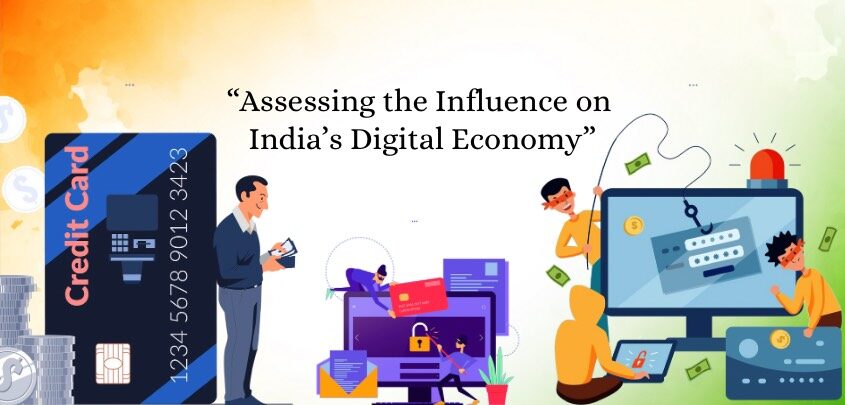
18, Apr, 2024
Impact of Cybercrimes on Indian Economy
Cybercrime poses a significant threat to developing countries due to insufficient resources for cybersecurity infrastructure and education. It stifles technological progress, weakens trust in digital transactions, disrupts economic growth, and jeopardizes data privacy.
Threat of Cyber Crime
Cybercrime is a significant threat to governments, corporations, and individuals, stealing data, disrupting business operations, and demanding ransom payments. It can cause reputational damage, financial losses, and national security threats.
Vulnerability of Tech-Savvy Youth:The influx of tech-savvy adolescents into the digital domain, especially in regions experiencing a “youth bulge,” increases vulnerability to cyber dangers due to limited awareness of cybersecurity.
For example, teenagers may unknowingly share sensitive information in online gaming forums, leading to account hijacking or financial scams. Additionally, cases of online grooming by predators or incidents of cyberbullying highlight the real risks faced by this demographic.
Appeal to Unemployed Youth: Jobless youth in developing nations are drawn to cybercrime due to its profitability and low-risk nature, exacerbated by the availability of illegal services, corruption, and inadequate law enforcement resources.In India, unemployed engineering graduates have been involved in hacking and data theft activities due to limited job prospects and the allure of quick financial gains.
Impact on Society and Development: Beyond financial losses, cybercrime undermines societal stability and development objectives, particularly affecting vulnerable groups like women and children who are susceptible to crimes such as online pornography.In India, cases of online harassment and stalking against women have increased, highlighting the vulnerability of women in cyberspace.
Impact of Cybercrime on India’s Economy: Cybercrime significantly impacts India’s economy, particularly due to its rapidly expanding digital economy. It causes financial losses, reputational harm, and operational disruptions for both large and small enterprises. Cyber incidents also weaken creativity and competitiveness, impede e-commerce, and pose systemic threats to vital infrastructure.
Growing Digital Connectivity: India’s rapid adoption of digitalization has increased susceptibility to cybercrime, with more people using digital payment methods and online banking.For instance, cases of SIM swap fraud, where attackers gain access to a victim’s SIM card to bypass authentication and conduct fraudulent transactions, have been reported.
Prevalence of Banking Frauds: India faces various banking frauds, including card skimming, identity theft, phishing attacks, and unauthorized transactions, resulting in financial losses for businesses and individuals.In 2021, the Reserve Bank of India (RBI) reported a significant rise in banking frauds, with cases involving card skimming, OTP-based frauds, and online banking scams.
Reputation Damage:High-profile cyber incidents tarnish India’s reputation as a technology and business process outsourcing, leading to a loss of foreign investment and business opportunities.The 2021 data breach at Air India, where sensitive personal information of millions of passengers was compromised, not only affected the airline’s reputation but also raised concerns among foreign travellers about data security when interacting with Indian businesses.
Consumer Confidence: Cybercrime undermines consumer confidence in online transactions and digital services, hindering the growth of e-commerce and digital payments, and impacting the overall economy.For instance, cases of OTP-based frauds, where fraudsters trick consumers into revealing one-time passwords for unauthorized transactions, have impacted consumer trust in online banking and payment services.
Investing in cybersecurity infrastructure, capacity building, and fostering collaboration between stakeholders are crucial for combating cybercrime in developing nations and promoting inclusive digital development.
